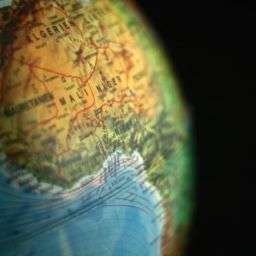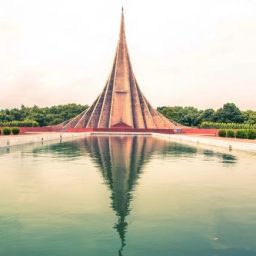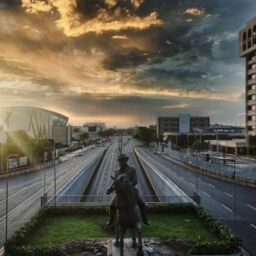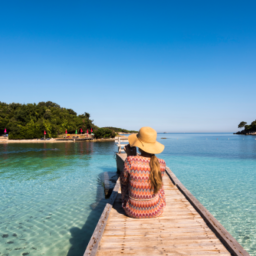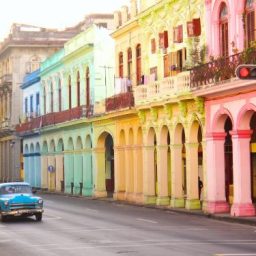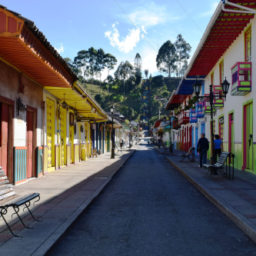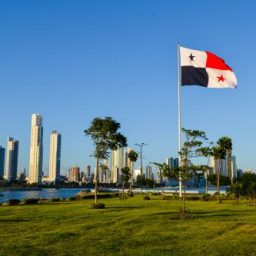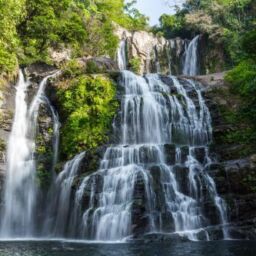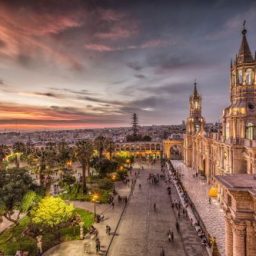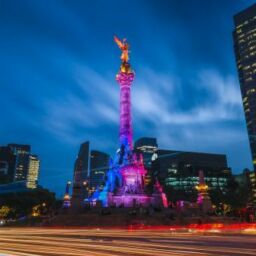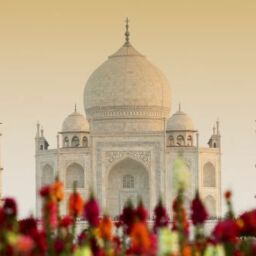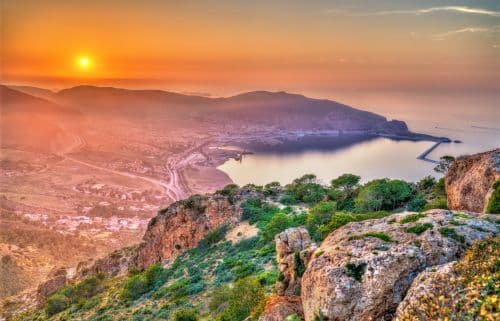

If you plan a trip to Algeria, make sure you prepare yourself well. Get to know the country and its residents. To help you with this task, we prepared a short guide to languages used by Algerians.
When thinking about Algeria, the first language that comes to mind is Arabic. That is not wrong because it is one of the official tongues of the country. However, on the streets of the 10th largest country in the world, you will meet speakers of many tongues. Let’s take a short trip to crowded Algiers and the Sahara desert’s hot sands.
Contents
Algeria in a nutshell
Algeria is a country in North-West Africa, located in the Maghreb region, and the largest Arab country in the world by surface area, covering 2,381,741 km². Its neighbours are Tunisia, Libya, Niger, Mali, Mauritania, and Morocco. The desert covers most of its territory.
People of Algeria
Algeria has a population estimated to be around 46 million people (source: worldometers.info). It is home to numerous ethnic groups, including Arabs and Berbers. The predominant religion is Sunni Islam, with Islamic law being the main source of the country’s legal system. The country’s capital, Algiers, is the biggest city; other important agglomerations are Oran and Constantine.
Algeria – current situation
Algeria is home to some of the world’s largest reserves of natural gas and oil, making it one of the most significant exporters in the region. In recent years, it has made significant strides in terms of economic development. Notably, this has included a rise in industrial output and increased access to higher education. Despite this progress, Algeria still suffers from several persistent issues such as high unemployment, poverty, and gender inequality.
Algeria in international organisations
Algeria is a major participant in international organisations. It has been a member of the United Nations since 1962 and actively takes place in various UN initiatives, such as the United Nations Development Programme and the Organisation for African Unity. Algeria is also a member of other regional institutions, including the Arab League, the Organisation of Islamic Cooperation, the African Union, and the Economic Community of West African States (ECOWAS).
Working in an international company has many perks. To get a position, however, candidates need to prove their skills. Testing language level may be a lengthy and tiring process if you do it the traditional way. Do not discourage your future employees from the beginning, use the benefits of Focus Audit Tool, a faster and more efficient method to test language skills.
Languages of Algeria
Algeria is a country rich in culture. The most widely spoken language in Algeria is Algerian Arabic, which is the official language of the nation since 1992. In 2016, Tamazight (Berber) got an equal status. There are also several other tongues spoken in Algeria, including French, Kabyle, and Chaoui. Bilingual teaching initiatives have been launched in recent years to give people access to more than one language. By understanding the various tongues spoken in Algeria, we can gain insight into its vibrant culture.
Algeria – Arabic language
Arabic is a Semitic language. It is closely related to Hebrew, Aramaic, and Maltese. The Algerian dialects’ originated in classic Arabic with Berber and French influences. Modern Standard Arabic (MSA) is used mainly in official communication, while in informal discourse, local dialects are preferred.
Education is a key factor for the Arabic language and culture development in Algeria. The students start learning the MSA in primary school. The official documents are written in Arabic; it is also the main language of newspapers, magazines, television, and radio.
The government’s actions aimed at abandoning the tradition of using French contributed to the widespread Arabization of the country. Currently, Arabic users constitute more than 81% of society (source: getblend.com).
Algeria – French language
Since 1830, French has been an integral part of Algeria’s linguistic landscape. During the colonial era, French was imposed as the official language of Algeria, which led to a rapid decline in the use of Arabic and other local languages.
In that period, for more than 100 years, it was used as a language of instruction in schools and became a symbol of status for many local families. After Algeria gained independence in 1962, Arabic was reinstated as the official language, but French remained widely spoken throughout the country.
French remains an important part of daily life in Algeria. It is used in a variety of contexts such as legal proceedings, international trade, and education. The language is widely spoken among the country’s youth, who are increasingly turning to it for job opportunities abroad. Around 20% of Algerians are fluent in written French, while a higher number of people can understand it (source: getblend.com)
The Algerian coast with its golden sand, sunny weather, and warm sea is a tempting holiday destination. Are you afraid of communication issues? Before the departure, learn the basics of French. Our French course will prepare for every situation you may encounter during your travels.
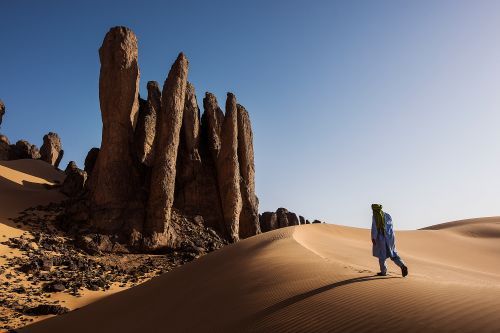
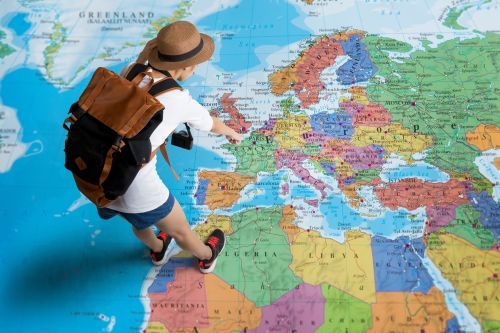
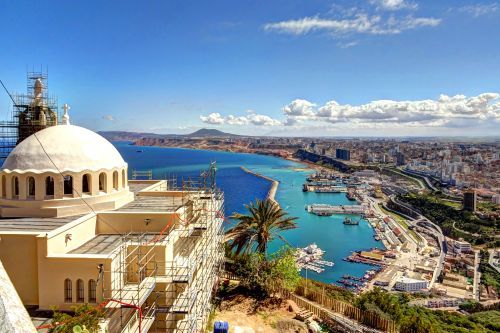
Algeria – Tamazight language
Tamazight (Berber) is the native language of Algeria, and it has been widely spoken in the country since antiquity. It belongs to the Afro-Asiatic family of languages. Tamazight constitutes an essential part of Algerian national identity and culture. It is used by around 12 million people across the country (source: iwgia.org).
Despite the recognition in 2016, the use of Tamazight has remained largely limited to rural areas. In recent years, there have been efforts to promote the use of the language in the public sphere. This includes initiatives such as bilingual signage, media programs, and educational support for Tamazight-speaking students. Such measures serve to recognize and celebrate Algeria’s linguistic diversity and will help ensure that future generations can continue to speak and understand the language of their ancestors.
Algeria – Kabyle
Kabyle is an Afro-Asiatic language spoken by the Kabyle people in Algeria. It is estimated that there are between 5 million speakers of Kabyle users in the country, mainly in the northern regions (source: Ethnologue). The language has been heavily influenced by French since the colonization, but it still retains its own unique features. Scientists believe it is one of the most conservative dialects in the Maghreb. Kabyle is usually written with a modified Latin alphabet; sometimes it uses the Tifinagh (Berber writing system).
Algeria – tourism
Algeria is a country of magnificent diversity and natural beauty. From the breathtaking Sahara Desert to the towering Atlas Mountains, there are countless amazing places to explore. The nation’s capital city, Algiers, is home to many cultural attractions, including historical monuments and galleries of art.
In addition to the stunning scenery, Algeria is known for its delicious cuisine, a mix of both North African and Mediterranean flavours. The country is also home to some of the best beaches in Africa. Whether you want to go swimming or just relax on the warm sand, Algeria has something for everyone.
Algeria – local laws and customs
When visiting Algeria, remember to behave according to local laws and customs that may differ significantly from those at home.
- Avoid bringing large amounts of alcohol, as it may be confiscated.
- Dress modestly. In the city centres and mosques avoid short skirts, shorts and dresses with bare arms.
- Be careful during Ramadan. From sunrise to sunset, avoid drinking, eating, and smoking in public spaces.
- National heritage, desert roses and corals are a few objects you cannot bring as a souvenir.
- Drugs are prohibited under any circumstances. Binoculars are considered military equipment and are banned.
- Do not take photos of armed forces officers and public facilities.
- In Algeria, it is only legal to exchange money in banks. Avoid buying currency from unverified sources.
Useful Algerian phrases
In Algeria, you can easily communicate in French. In larger cities, you may also find English speakers. To improve the journey, get the basics of Arabic, one of the most difficult languages in the world. While trying to pronounce the words and phrases in the local language, you will win the hearts of the locals.
- Marhaban – Hello
- Sabah al-khayr – Good morning
- Sabah an-nur – Good morning (response)
- Masa al-khayr – Good afternoon / good evening
- Masa an-nur – Good afternoon / good evening (response)
- Tisbah ala khayr – Good night
- Salamat – Bye
- Bislama – Goodbye
- Ki dajra? – How are you?
- Lebes alik? – Is everything okay?
- Wakha – Alright
- Szukran bzeef – Thank you very much
- La szukran aala łażib – You are welcome
- Aafak – Please
- Smhli – Excuse me
- Bon szons – Good luck
- Maa salama – Have a good trip
- Sana saida – Happy birthday
- Mabruuk – Congratulations
- Bsahha – Enjoy your meal
- Lajatek bsahha – Thank you (as a response to “enjoy your meal”)
- Fhemtini? – Do you understand me?
- Ijeh – Yes
- Lla – No
- Ma fhemtsz – I do not understand.
Algerian literature
Algerian literature is an important part of the Maghreb region’s literary tradition and has been influenced by its long history as a French colony. It is considered to be one of the most vibrant pieces of literature in the Arab world, featuring a wide variety of styles and genres, ranging from traditional poetry and storytelling to modern novels, plays, and short stories.
Algerian literature reflects the diverse experiences and perspectives of its authors, including those of women and minorities, as well as the struggles for independence and decolonization in the 20th century. Historically, the literature has been written in Arabic or French; however, today many authors also use Tamazight (Berber) languages. Prominent Algerian authors include Mohamed Dib, Kateb Yacine, and Abdelkader Alloula.
Algerian translations
Getting a professional Arabic translation can be a challenge. Luckily, you can find this service in our offer. The team of professional translators will be happy to take on your task. Whatever document you may need to translate: a website, marketing materials, literature, academic papers, etc., we are here to help you. Please do not hesitate to contact us for further information.

